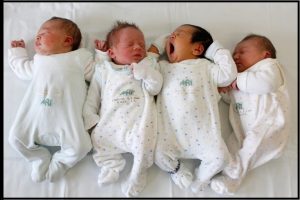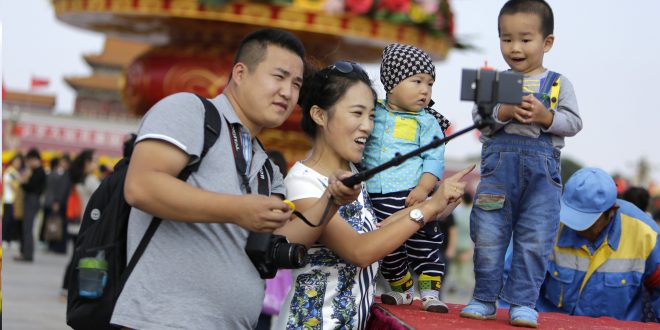31-05-2021
BEIJING: China has relaxed its family planning policy to allow couples to have three children after a census showed its population is rapidly ageing, state media reported, in a major policy shift to boost birthrate in the world’s most populous nation.
For nearly 40 years, China enforced a controversial “one-child policy” one of the strictest family planning regulations worldwide which was relaxed in 2016 to a “two-child policy” due to widespread concerns about an ageing workforce and economic stagnation.
Despite government efforts to encourage couples to have children, China’s annual births have continued to plummet to a record low of 12 million in 2020, the National Bureau of Statistics said last month.
That threatens a demographic crisis that has alarmed the ruling Communist Party, headed by President Xi Jinping, booking in a shortage of young workers to drive an economy that experts say will have to support hundreds of millions of elderly by 2050.
“To actively respond to the ageing of the population … a couple can have three children,” Xinhua said, citing a Monday meeting of China’s elite Politburo leadership committee hosted by President Xi.
 China’s fertility rate stands at 1.3 below the level needed to maintain a stable population, the National Bureau of Statistics revealed.
China’s fertility rate stands at 1.3 below the level needed to maintain a stable population, the National Bureau of Statistics revealed.
The once-in-a-decade 2020 census results published last month also showed that China’s population grew at its slowest rate since the 1960s, reaching 1.41 billion.
It comes alongside a sharp drop in the number of working-age people, once again raising fears of a looming demographic crisis.
Skewed gender balance
A journalist reporting from Beijing said the release of the census data forced the hand of authorities.
“If things stay the same, China is heading for a looming demographic crisis. This has been on the minds of analysts and experts when it comes to China’s population for decades. And that’s why we did see the 2016 change allowing couples to have two children, “but it seems the two-child policy has failed to produce the result the Chinese government was hoping for,” Yu said.
China’s gender balance has also been skewed by decades of the one-child policy, and a traditional social preference for boys which prompted a generation of sex-selective abortions and abandoned baby girls.
Although the policy has been relaxed in the last few years, this has not prompted a baby boom as policymakers had hoped.
Falling marriage rates in recent years have played out in slower birth rates, as have rising costs of living and increasingly empowered and educated women delaying or avoiding childbirth.
The demographic shift in China has significant economic and political implications for the world’s second-biggest economy.
A third of Chinese people are forecast to be elderly by 2050, heaping huge pressure on the state to provide pensions and healthcare. (Int’l News Desk)
 Pressmediaofindia
Pressmediaofindia




